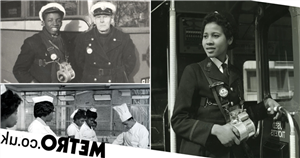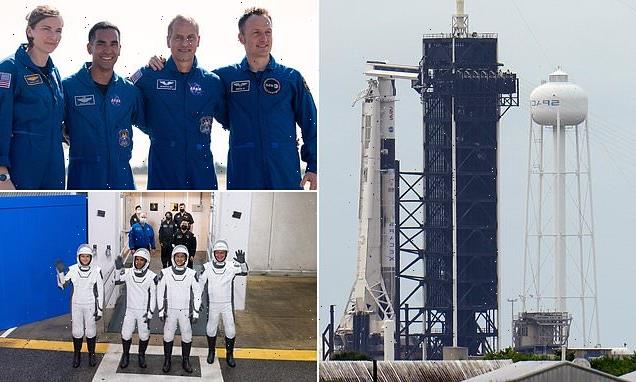The history and contribution of Caribbean workers to transport in London since the 1950s will be celebrated in a new exhibition – while the racism they faced will also be acknowledged.
The exhibition – Legacies: London Transport’s Caribbean Workforce – will open at London Transport Museum, Covent Garden in February 2022, and it will document the struggles endured by these individuals and families, especially at the start of their new lives in the capital.
Visitors will be able to uncover stories and memories from first, second and third generation Caribbean people, from those who worked for London Transport in the 1950s and 1960s, to today’s employees.
After the Second World War, as the ties of the British Empire started to loosen, the UK’s need for workers coincided with the Caribbean population’s need for jobs. In the late 1940s, Britain granted the status of British Subject to citizens of the UK and colonies. Britain benefited greatly from those making the difficult journey to London, starting with the docking of the HMT Empire Windrush at Tilbury in 1948.
From 1956 to 1970, London Transport recruited about 6,000 employees directly from some British colonies in the Caribbean to the UK.
The experiences of new recruits are explored in a short film revisiting interviews with direct recruits from the Caribbean shot for the Museum in 1994, along with some of the original advertising posters created to drum up interest for vacancies back in London.
The new Caribbean recruits arrived with high hopes of life in Britain but were shocked to be faced with hostility and racism and struggled to find places to live. The voices of early Caribbean arrivals are captured in evocative quotes that will form part of the display as visitors walk around.
Ruel Moseley, a bus conductor recruited from Barbados in 1959, recalls: ‘You were not used to sharing five to a room. However poor you were in Barbados you were not used to sharing a room… I cried like a baby the first week I was here.’
New recruits worked as bus conductors, station staff and canteen assistants and in track maintenance and building work. Though most were skilled and well-educated they had to take basic, low-paid work and often found promotion difficult due to pervasive racism. Homesickness and the cold weather also made the lives of newly arrived migrants difficult.
Yet despite these challenges, many enjoyed their work. New social and sports clubs were set up, such as the London Transport Caribbean Association, which helped with everything from holidays to assistance with funerals in the Caribbean.
Most of the initial Caribbean recruits were men, but women also took up jobs, especially in the numerous canteens that in 1956 helped to feed 87,000 staff.
Historical images of Caribbean women working in the canteens illustrate life in these staff restaurants and a ‘Syllabus of Training for Cooks‘manual shows a typical day, with its mix of lectures and practical work. These new cooks soon introduced new Caribbean flavours and recipes to the traditional British food.
Today, Transport for London includes a new generation of Londoners, some of whom are relatives of the first Caribbean recruits.
Ashley Mayers, a customer experience manager, has three generations in his family that have worked for London bus services. Ashley’s grandfather was recruited from the Caribbean in 1957 to LT’s Merton bus garage in London where he worked as a driver. Ashley’s father was responsible for the computers that helped run bus routes.
Visitors will be able to listen to Ashley’s interview via an audio speaker in the exhibition.
The final part of the exhibition focuses on the continuing influence Caribbean culture and art has on the capital and beyond. A new film exploring these themes will be unveiled, as well as photography documenting people’s journeys to Notting Hill Carnival.
The Museum will also be launching a new immersive storytelling session for primary schools exploring themes of inclusion and identity and uncovering how Caribbean culture has shaped the way we travel and the city in which we live.
Matt Brosnan, head curator at London Transport Museum, says: ‘Lots of people are familiar with the arrival of Caribbean people on the HMT Empire Windrush at Tilbury Docks in 1948, but many are unaware that London Transport went over to the Caribbean to recruit employees directly from Barbados and other islands from 1956 to 1970.
‘This new exhibition celebrates the contribution Caribbean communities have made to London’s transport but also highlights their struggles. I’d like to thank our Advisory Board, which is made up of TfL colleagues of Caribbean heritage, for their enthusiasm and collaboration on the creation of this exhibition.’
Winsome Hull, senior business strategy manager at TfL adds: ‘Being of Caribbean descent myself, it’s good to see that organisations like London Transport Museum are recognising the role Caribbean communities have played in London’s transport history, the challenges we’ve faced and our positive impact on today’s culture.’
The exhibition is expected to run until summer 2024.
Do you have a story to share?
Get in touch by emailing [email protected].
Source: Read Full Article




